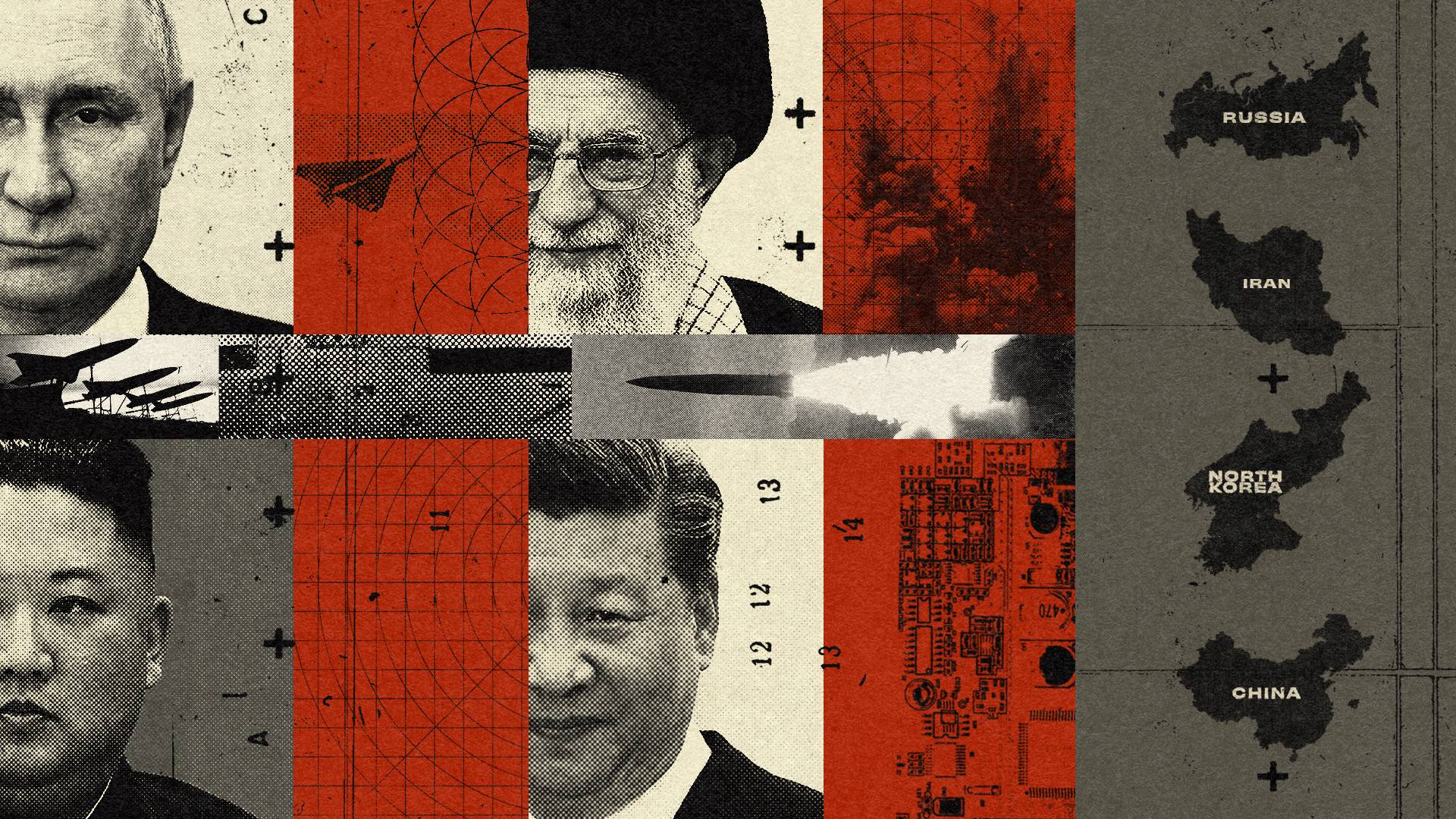
July 28, 2025
New Report Forecasts the Rising Military Challenges from the Axis of Upheaval
Washington, July 28, 2025 — A new report released today by the Center for a New American Security (CNAS) warns of the threat posed by intensifying military cooperation among the axis of upheaval.
The Axis of Upheaval: Gauging the Growing Military Cooperation Among Russia, China, Iran, and North Korea, by Andrea Kendall-Taylor and Nicholas Lokker, assesses how military cooperation among these countries is likely to develop and identifies the key risks that the United States and its allies will face as a result of the axis’s growing collaboration.
Despite some claims that Russia’s and China’s limited support for Iran—amid Israeli and U.S. strikes—spells the end of their ties, the report argues that axis cooperation will persist. Defense collaboration among the four countries has deepened significantly since Russia’s full-scale invasion of Ukraine, and looking forward, the incentives fueling their cooperation have not changed. If anything, the report argues, their military ties will only continue to grow.
“The axis of upheaval envisions a world ordered far differently from the one in which we live today,” said Richard Fontaine, chief executive officer of CNAS. “The United States must develop a comprehensive response that will safeguard its interests, values, and international arrangements.”
The report includes key findings on the impacts of axis cooperation:
- Continued axis of upheaval cooperation is likely to shorten the time it will take Russia to reconstitute its conventional forces, increasing the pressure on Europe to more rapidly ramp up its own capabilities. Although Russia did not step in to support Iran in June 2025, the war in Ukraine still demonstrates that defense planners cannot assume that the United States will be dealing with one adversary at a time. Instead, net assessments must now account for the possibility that—in the event of a conflict with one adversary—other axis countries will provide assistance, increasing the resilience of the adversary and generating new and more complicated scenarios.
- Growing cooperation could facilitate axis countries’ abilities to project power into regions where they would not otherwise have a presence—allowing them to carry out new types of targeting operations, raising questions about the survivability of U.S. forces, and creating new contingencies the United States would have to confront.
- Through their cooperation, the axis of upheaval countries are gaining valuable information and learning lessons that may strengthen their military performance and increase the resilience of each regime. Constraints on deeper cooperation remain, including divergent interests and reputational costs, but are weakening as shared opposition to the U.S.-led international order grows.
The report urges U.S. and allied leaders to deepen alliances and invest in the capabilities needed to deter simultaneous and multilateral threats from this emerging bloc.
The full report can be read here, and more work from the CNAS Axis of Upheaval initiative can be found here.
For more information or to arrange an interview with the report’s authors, please contact Charles Horn at [email protected].
The Axis of Upheaval
Russia’s full-scale invasion of Ukraine in 2022 was a critical catalyst for cooperation among Russia, China, Iran, and North Korea—what the authors call the “axis of upheaval....
Axis of Upheaval
Today a new Axis of Upheaval—the increasing alignment among China, Russia, Iran, and North Korea—is fundamentally altering the geopolitical landscape. Cooperation among the fo...




